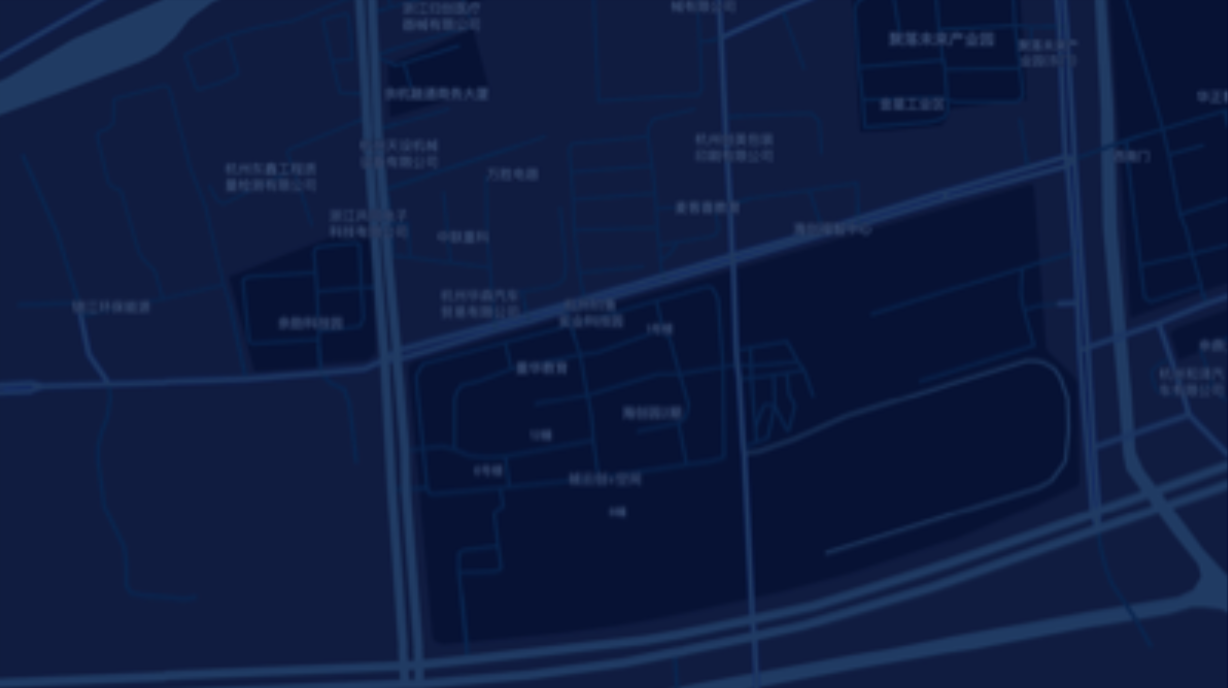

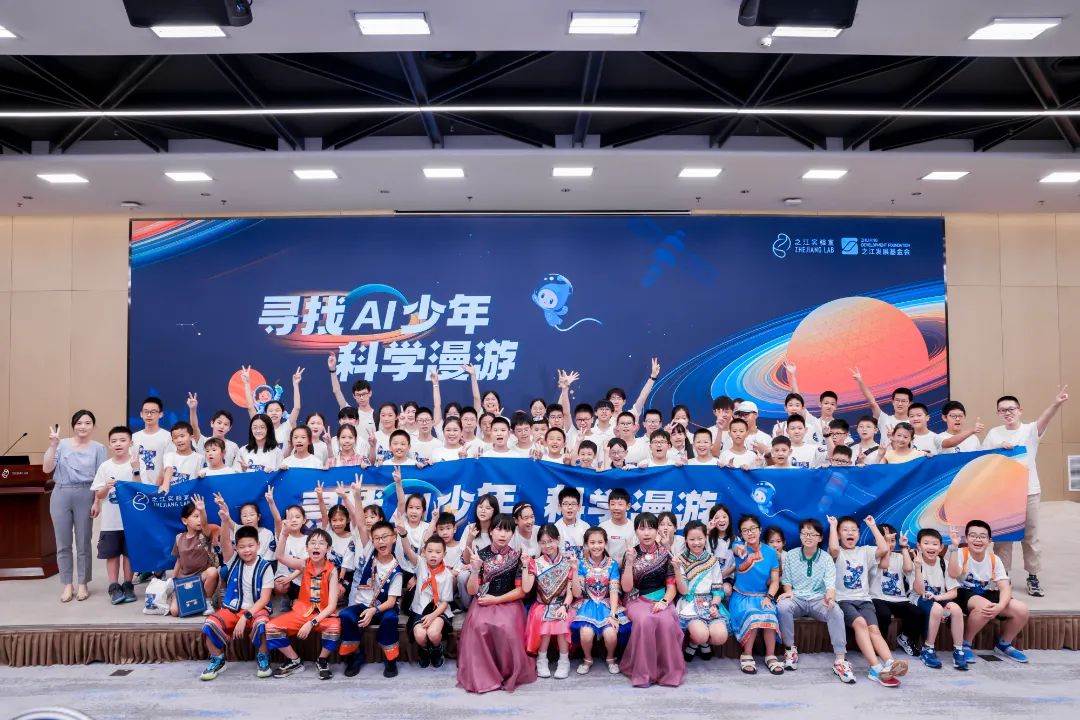
What's in a lab? Kids might answer: scientists, unintelligible formulas, experimental instruments, advanced computers...
Recently, students from local primary and middle schools including Tianyuan College, Hangzhou Chongwen Experimental School and Caihe Experimental Middle School, as well as students from Jingning She Autonomous County in Lishui, a mountainous island county of Zhejiang Province, stepped into Zhejiang Lab (ZJ Lab). The "Science Fun" event lasting all day has materialized science and research in their eyes.
It turns out that telescopes can take pictures of the universe, the Milky Way galaxy can be seen in the corridor, and ultrasonic waves can unlock the underground structure of Qiandao Lake... All this channeled power from intelligent computing!
On the same day, the quarterly ZJ Lab Open Day took place, which coincided with the summer vacation. This event attracted 100 "teens in AI". During the one-day "Science Fun" event, researchers from different fields led these teens to study, think and experiment, and perceive the key role of intelligent computing in life and the future.
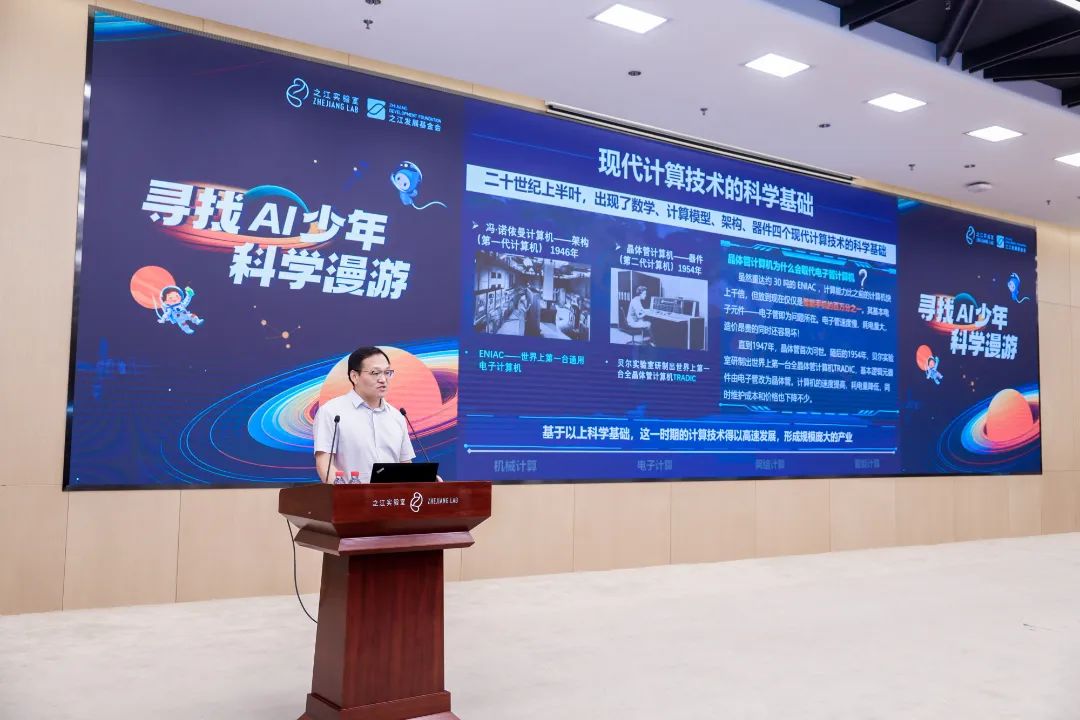
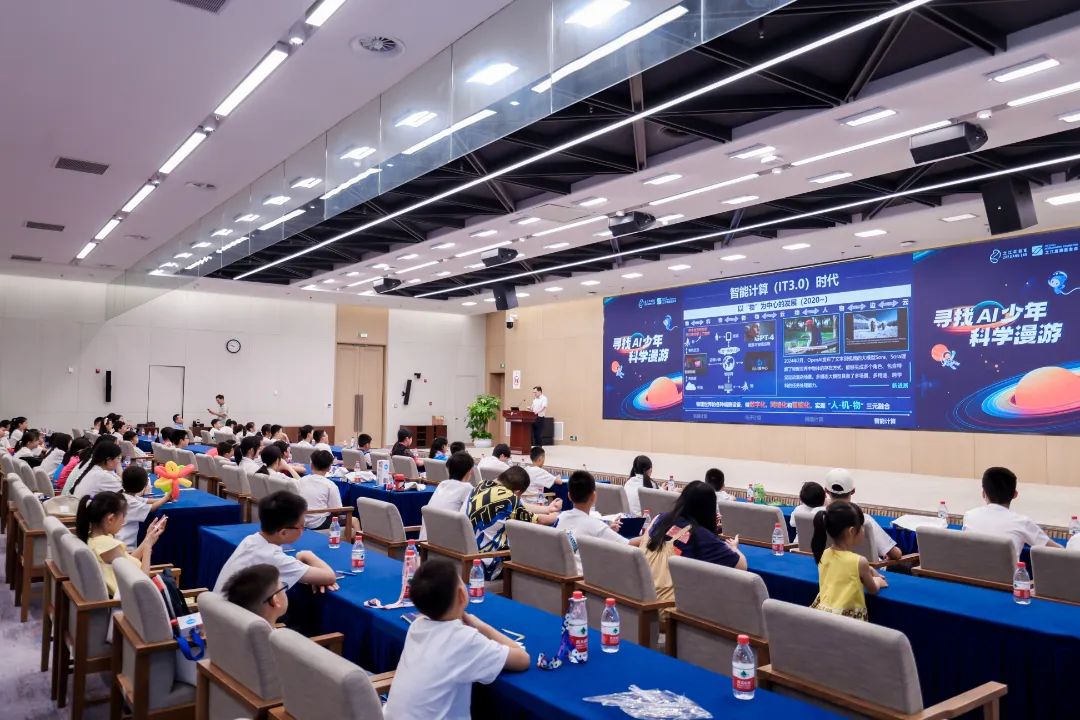
What is intelligent computing? HE Shuibing, Vice President of ZJ Lab, dedicated his first public speech to these teens in AI. "Following the era of mechanical computers, the era of electronic computing and the era of network computing, an era of intelligent computing has arrived," said Prof. HE. He spoke for more than an hour, introducing the history of intelligent computing to the teens. "Intelligent computing includes at least three basic elements, i.e. computational power, data, and models," he said.
"Intelligent computing is a core foundation for a country's capacity for innovation and also a driving force for the development of the digital economy. It can change every aspect of society and play an important role in many fields such as economic and industrial development and social governance, becoming the cornerstone of the future society," said HE Shuibing.
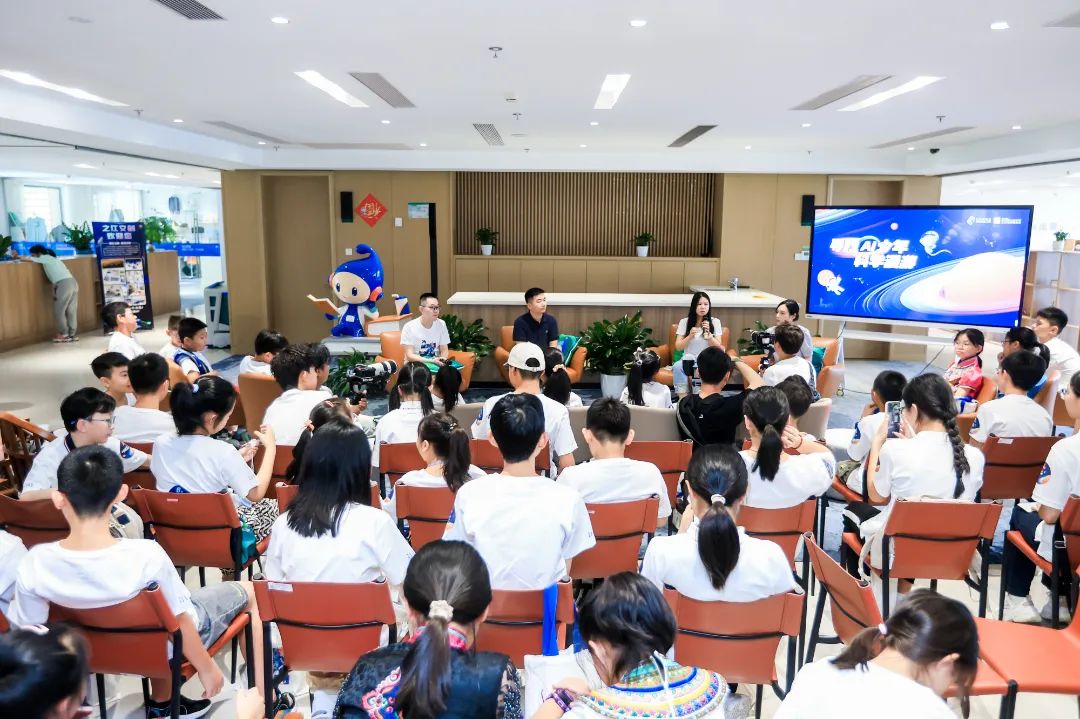
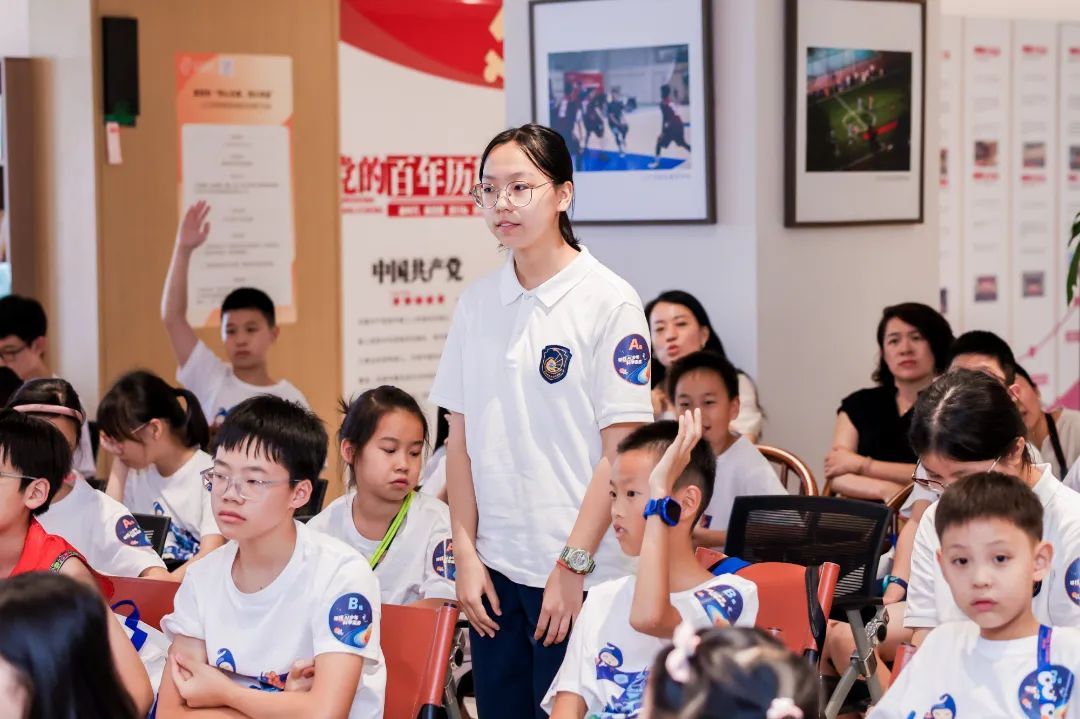
Man-machine dialogue in games, face recognition, electronic medical records, driverless cars... For teens in AI known as "Post-10s", AI is a buzzword that accompanies their growth. In the "Science Talk" session, three young researchers from ZJ Lab sat together with the teens and used daily routines to inspire their numerous imaginations about the development of intelligent computing.
"We can regard foundation models as the well-known Doraemon. It can help you do a lot of things." "Imagining that camera is the eye, microphone is the ear, and the computational power of data is the brain, all of them enable computers to perceive and judge the outside world." In the question-and-answer session, researchers explained the "success secrets" of intelligent computing in plain language to the teens.
"Can AI replace humans?" "Are AI's capabilities limited?" "Will AI have emotions?" In addition to definitive answers to these questions, ZJ Lab also hopes to engage teens in open-ended discussions to arouse their curiosity and deepen their understanding of intelligent computing.
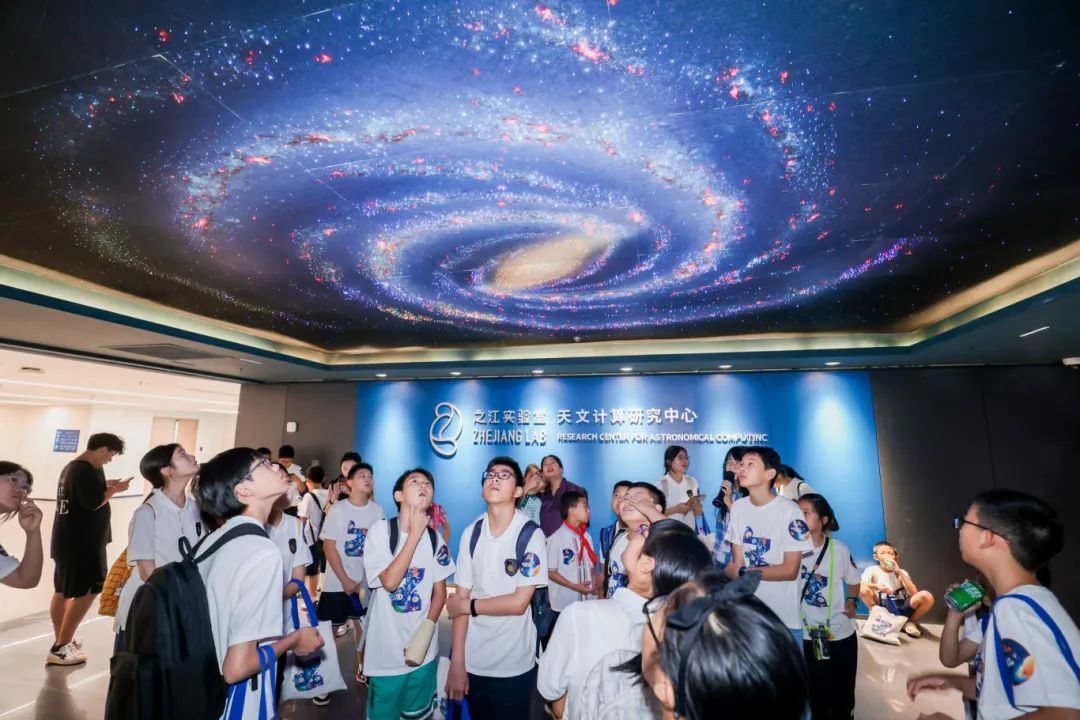
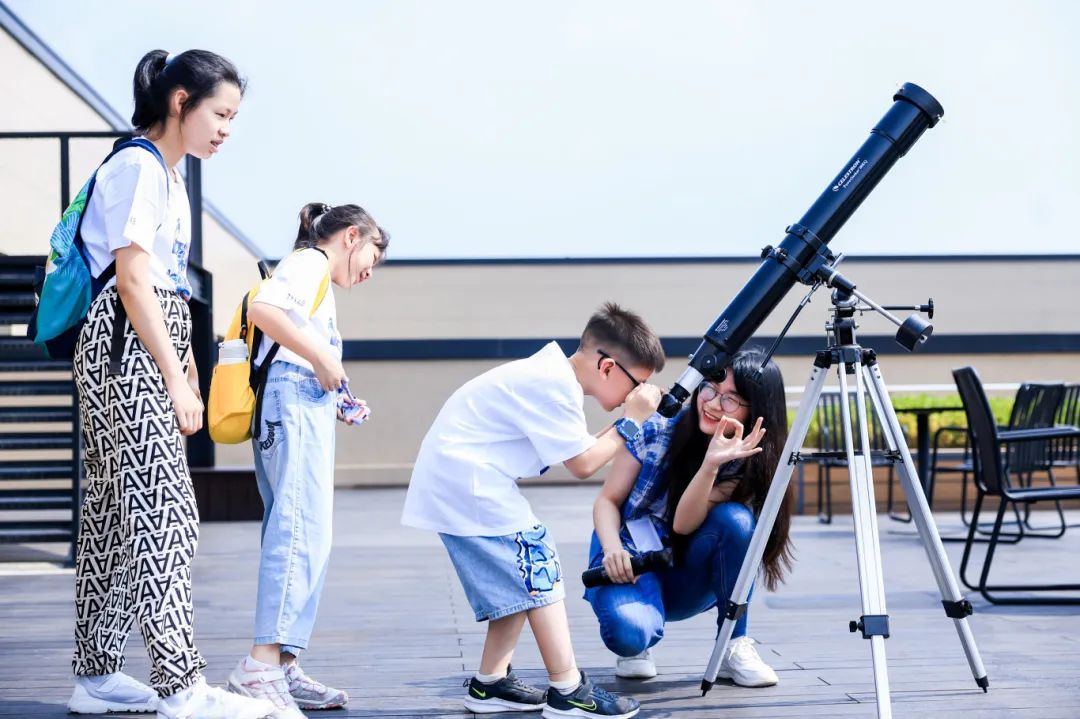
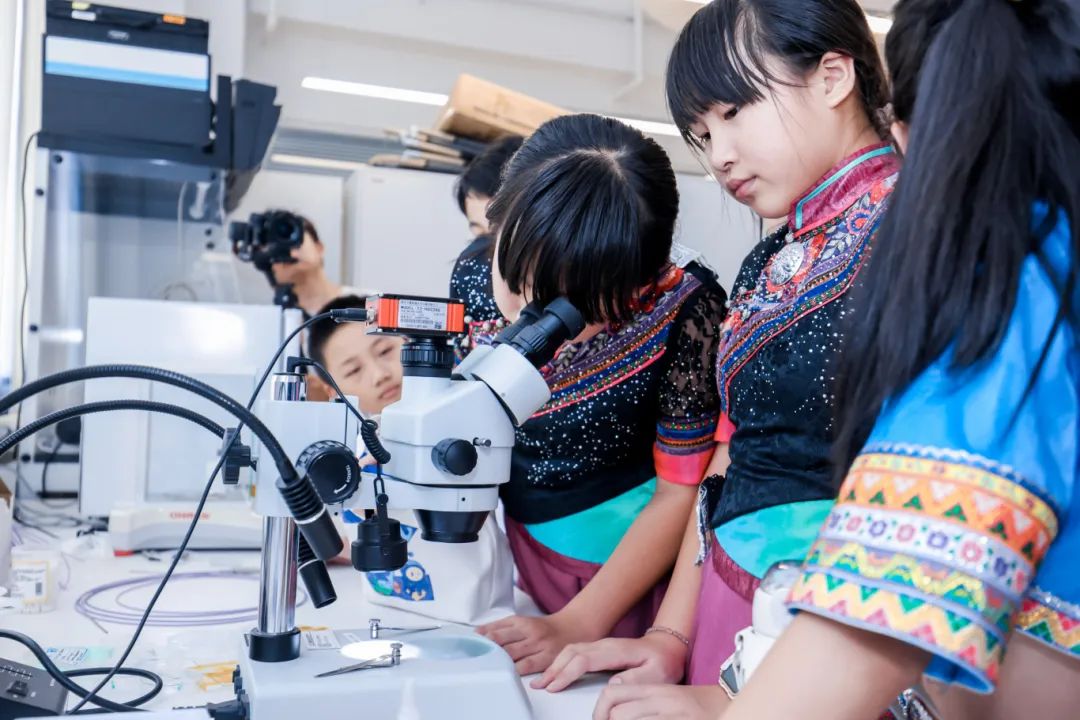
In the afternoon, the teens went into ZJ Lab's Research Center for Astronomical Computing and Research Center for Novel Computing Sensing and Intelligent Processing, allowing for observations and experiments to make abstract "AI knowledge" interesting and clear.
When we looked up at the stars together in the starry corridor of the Research Center for Astronomical Computing, the researchers told us that our familiar Milky Way map, a frontal image of the Milky Way, is not directly photographed by telescopes, but based on theoretical models and computer simulations. Under their guidance, students observed the real-time status of the Sun with a telescope and saw a few little black spots in sunlight, different from the big fireball seen with the naked eye, which are called sunspots. When a hand is placed in a water tank, sound wave curves appear on the computer, making sound visible. When an ultrasonic instrument is placed in a box, the shape of the object inside the box can be known, accounting for the principle of B-ultrasound... ZJ Lab is applying intelligent computing in such fields as astronomy, deep-water exploration, and life science, to explore different possibilities for a new scientific research paradigm.
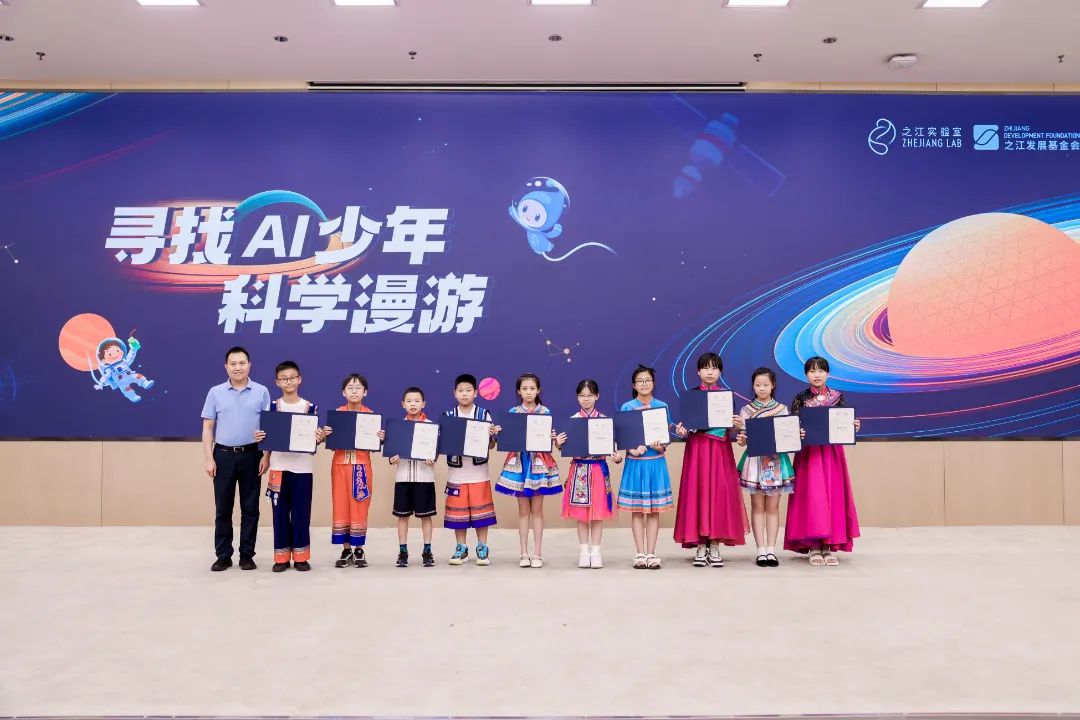
The one-day "Science Fun" event was short but substantial. The teens in AI had a lot of feelings at the closing ceremony.
MAO Xuechu, a sixth-grader at the No.1 Experimental Primary School of Jingning She Autonomous County in Lishui, was invited to ZJ Lab in Hangzhou together with his 11 schoolmates, which left him with unforgettable memories despite the long distance. He said, "This visit gives us a chance to experience the charm of AI, one of the most cutting-edge technologies, and also inspires our strong interest in technological innovation. I think we should inherit the scientists' spirit of innovation, study harder, and in the future, we can use our innovations to contribute to building our great motherland."
YU-ZHAO Yiyan from Hangzhou Entel Foreign Language School said that she saw the charm of science and technology from researchers and was aware of what learning is. "Today, a young female researcher told us that when encountering difficulties in our school life, we should not give up, but stick to greatness in simplicity and always stay curious in order to become expert learners."










